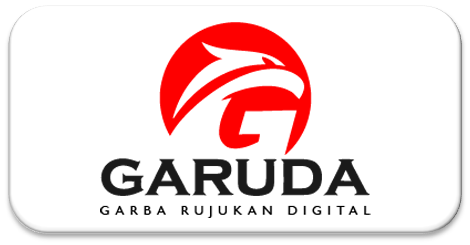OPERATIONALIZING AL-GHAZALI’S ETHICS IN GOLD TRADING: Shariah-Compliant Governance and Policy Pathways in Aceh
Keywords:
Al-Ghazali’s ethics, Shariah-compliant governance, gold trading, Maqasid al-Shariah, policy pathwaysAbstract
Purpose: This study addresses a critical gap in Islamic finance literature by empirically operationalizing Imam Al-Ghazali’s ethical framework (Maslahah wal Mursalah) within Aceh’s gold trading sector, moving beyond theoretical discourse to examine how classical principles translate into Shariah-compliant governance. It investigates tensions between ethical imperatives and market practices in Indonesia’s only Shariah-governed province.
Method: Employing a qualitative case study design, we conducted semi-structured interviews with 9 key informants (3 gold shop owners, 6 consumers) in Langsa City, supplemented by 120 hours of participant observation and document analysis of Aceh Shariah Board guidelines. Thematic analysis using identified patterns in ethical adherence and governance gaps.
Findings: While traders consistently applied ‘Adl on fixed pricing to eliminate Gharar, and anti-riba practices for the interest-free installments for low-income buyers, a cooperative ethics remained underutilized. Acehnese Qanun in social harmony both facilitated trust and obscured non-compliance with Maslahah wal Murshalah, by avoiding consumer education on gold purity. Yet, only 33% of shops pursued formal Shariah certification
Limitations and Theoretical Implications: The small sample limits generalizability but provides depth for theory-building. Findings challenge idealized models of Islamic ethics by revealing Adat-Shariah hybridity, advancing Maqasid al-Shariah scholarship through empirical validation of Al-Ghazali’s context-dependent ethics
Practical Implications: We propose a three-tier policy pathway: (1) mandatory gold purity certification via Aceh Shariah Board, (2) Maslahah-driven consumer education modules, and (3) integration of interest-free schemes with zakat institutions to advance SDG 1. This operationalizes ethical governance for Asia’s informal Islamic finance sectors
References
Afna, M. (2023). Exploring Imam Al-Ghazali’s Teachings: The Application of Mashlahah-Mursalah in Balancing Islamic Values and Digital Conduct at the Intersection. Digital Muslim Review, 1(1). https://doi.org/10.32678/dmr.v1i1.4
Bahri, E. H., Langsa, I., & Eni Haryani Bahr. (2022). Green Economy dalam Perspektif Maqashid Syariah. Tansiq: Jurnal Manajemen Dan Bisnis Islam, 5(2).
Dengah, D., Doda, I., & Aslan, A. (2023). The effect of gold price and NIKKEI on market return in Indonesia. The Contrarian : Finance, Accounting, and Business Research, 2(1). https://doi.org/10.58784/cfabr.19
Hillebrand, J. D., Berg, B. L., Wiltfang, G. L., & Berg, B. L. (n.d.). Qualitative Research Methods for the Social Sciences. Teaching Sociology.
Khalil, M., & Ismaulina. (2022). CONSIDERING MURABAHAH GOLD FINANCING PRACTICE IN ACEH WITH REFERENCE TO ISLAMIC BANKING AND SHARIA PAWNSHOP. Miqot: Jurnal Ilmu-Ilmu Keislaman, 46(2). https://doi.org/10.30821/miqot.v46i2.915
Linge, A., Ahmad, U. S., & Setiawan, P. (2022). Maqashid Entreprenuership Dalam Fiqh Muamalah dan Ekonomi. Menara Ilmu, 16(2). https://doi.org/10.31869/mi.v16i2.3142
Liu, H., & Tang, X. (2023). Research on Hedging Strategies in Gold Futures Market. BCP Business & Management, 46. https://doi.org/10.54691/bcpbm.v46i.5086
Mohd-Sofian, F. N. R., & Muhamad, R. (2019). Corporate social responsibility practices in Islamic banks. In Strategic Corporate Social Responsibility in Malaysia. https://doi.org/10.4324/9780429057182-8
Mun’im, Z. (2021). Konsep Amar Ma’ruf Nahi Munkar al-Ghazali dan Relevansinya dengan Nilai-nilai Moderasi Beragama di Pondok Pesantren Sidogiri. ESOTERIK, 7(2). https://doi.org/10.21043/esoterik.v7i2.8658
Munir, M. (2022). Maqāṣid Al-Sharī‘Ah or the Higher Objectives of Islamic Law: An Introduction. SSRN Electronic Journal. https://doi.org/10.2139/ssrn.3994622
Nisa, E. F. (2023). Transnational halal networks: INHART and the Islamic cultural economy in Malaysia and beyond. Global Networks, 23(3). https://doi.org/10.1111/glob.12432
Noriska, R. S. (2018). Pengelolaan potensi magrove dan strategi pengelolaan wilayah pesisir di Gampong Kuala Langsa, Kota Langsa, Aceh. Jurnal Samudra Geografi, 1(1).
Permata, R. (2023). Manajemen Pendidikan Karakter dalam Mewujudkan Akhlak Mulia Peserta Didik. JIECO: Journal of Islamic Education Counseling, 3(1). https://doi.org/10.54213/jieco.v3i1.269
Robiyanto, R. (2018). Testing of The Gold’s Role as a Safe Haven and Hedge for Sharia Stocks in Indonesia. Al-Iqtishad: Jurnal Ilmu Ekonomi Syariah, 10(2). https://doi.org/10.15408/aiq.v10i2.6527
Robiyanto, R., Hadiyatno, D., Sudjinan, S., & Ernayani, R. (2019). Gold and capital market in Indonesia: A preview on strategy of hedging and diversification. Journal of International Studies, 12(2). https://doi.org/10.14254/2071-8330.2019/12-2/7
Rusfi, M. (2014). Validitas Maslahat Al-Mursalah Sebagai Sumber Hukum. Al-’Adalah, XII.
Shabbir, A., Kousar, S., & Batool, S. A. (2020). Impact of gold and oil prices on the stock market in Pakistan. Journal of Economics, Finance and Administrative Science, 25(50). https://doi.org/10.1108/JEFAS-04-2019-0053
Syawaluddin, F. A. (2019). Lembaga Pendidikan Sufistik Masa Klasik Islam (Ribath, Zawiyah, Khanqah). Pena Cendikia, 2(1).
Virgiawan, R., Al-Qudry, A., & Pusparini, M. D. (2023). What Motivates the Gold Traders to Fulfill Zakat on Gold Compliance? Discovering the Internal and External Factors. Adzkiya : Jurnal Hukum Dan Ekonomi Syariah, 11(2). https://doi.org/10.32332/adzkiya.v11i2.7656
Yousaf, I., Bouri, E., Ali, S., & Azoury, N. (2021). Gold against Asian Stock Markets during the COVID-19 Outbreak. Journal of Risk and Financial Management, 14(4). https://doi.org/10.3390/jrfm14040186
Yuliana, A. F., & Robiyanto, R. (2021). PERAN EMAS SEBAGAI SAFE HAVEN BAGI SAHAM PERTAMBANGAN DI INDONESIA PADA PERIODE PANDEMI COVID-19. Jurnal Ilmiah Bisnis Dan Ekonomi Asia, 15(1). https://doi.org/10.32815/jibeka.v15i1.217
Downloads
Published
Issue
Section
License
Copyright (c) 2025 Zubir, Erisa Delima Putri, Ismail Fahmi Arrauf Nasution , Munadiati (Author)

This work is licensed under a Creative Commons Attribution-ShareAlike 4.0 International License.










